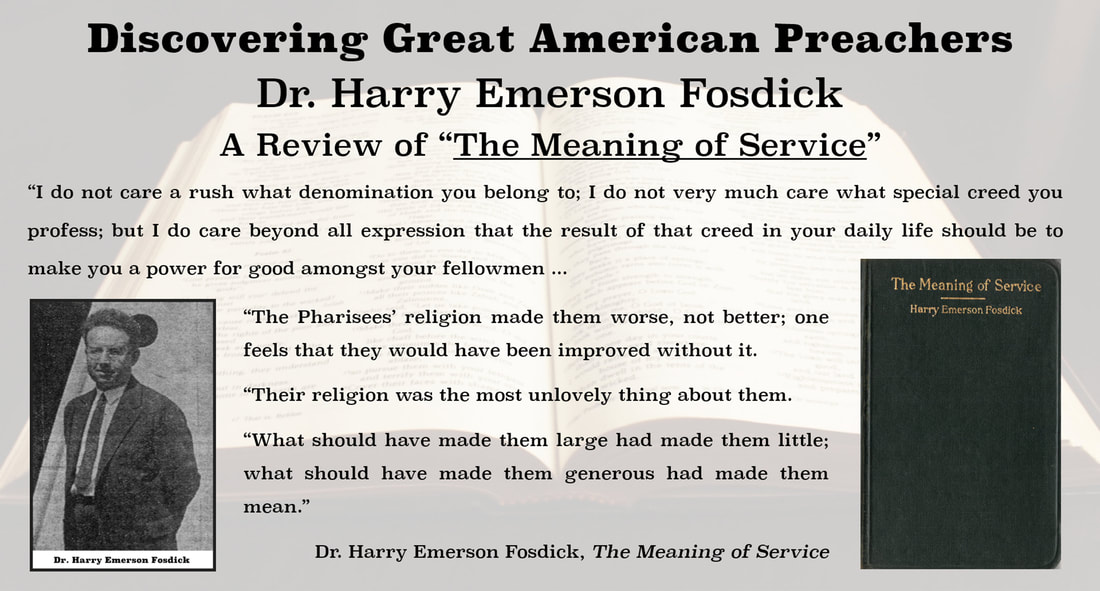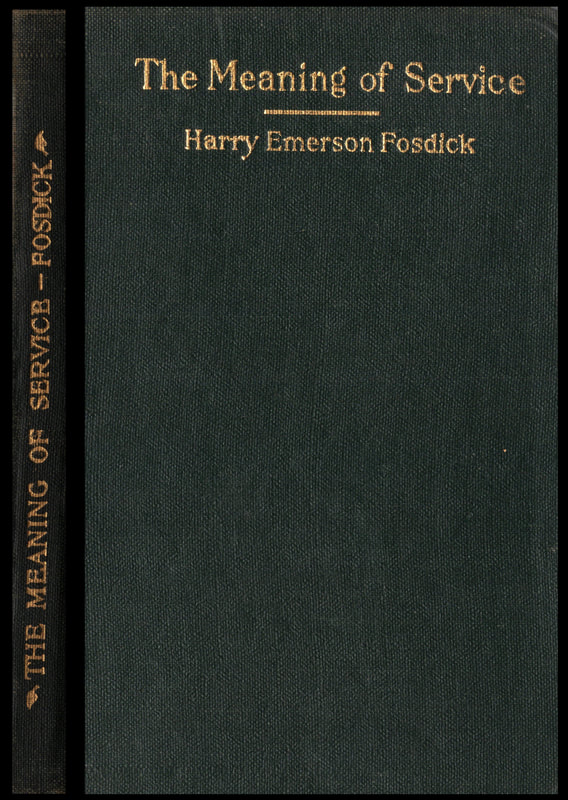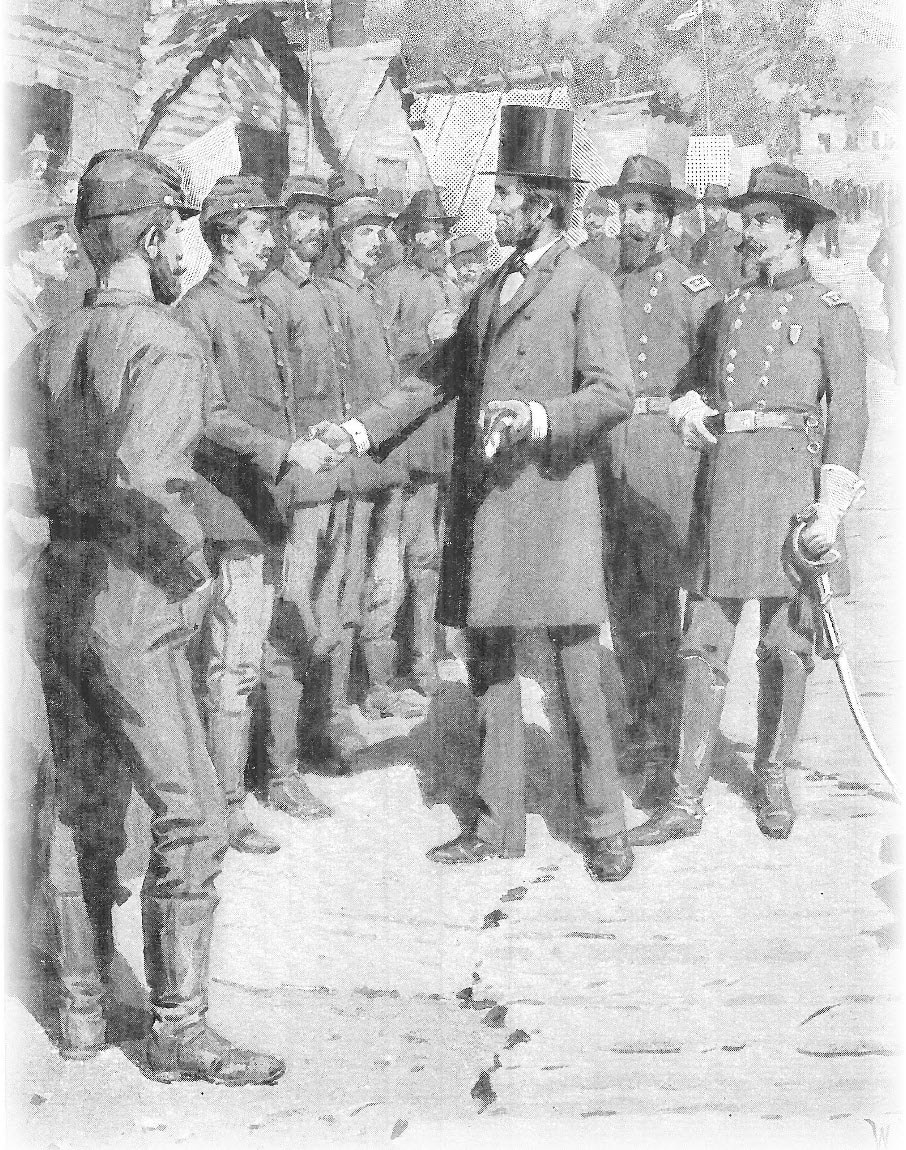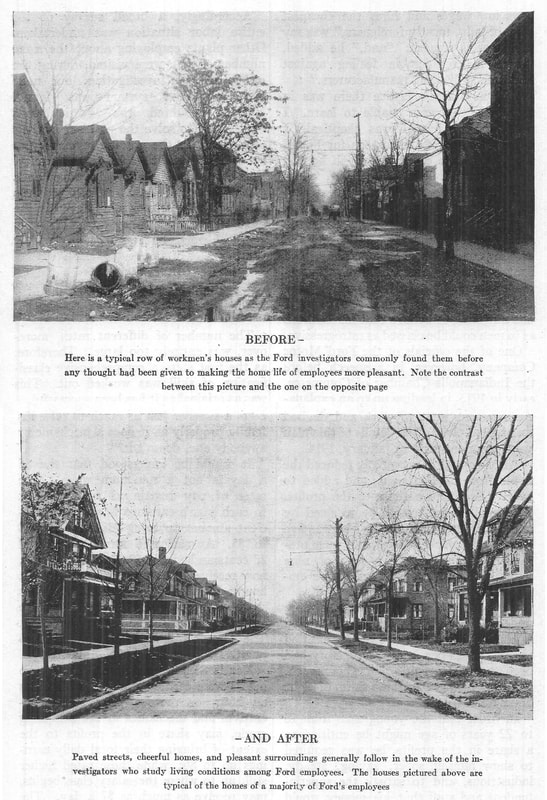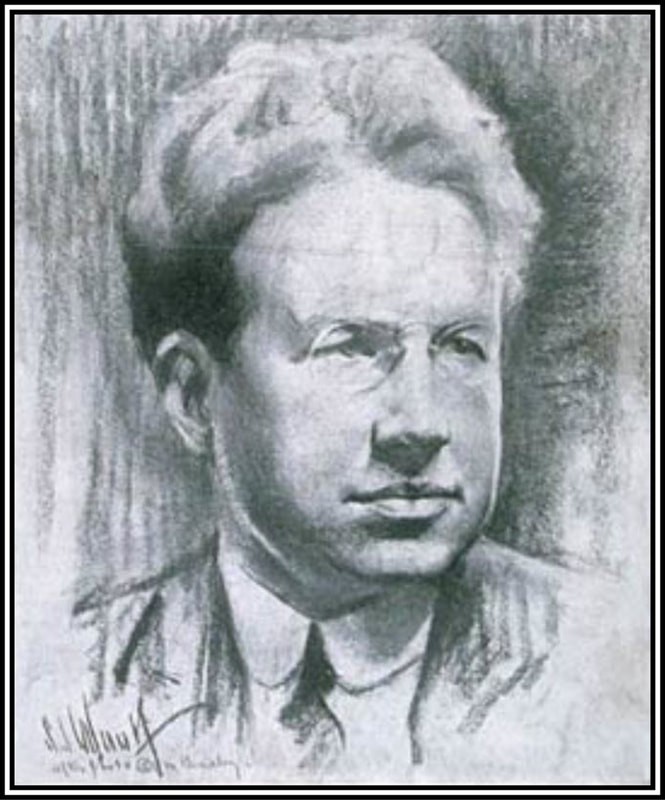A Review of "The Meaning of Service" by Dr. Harry Emerson Fosdick
- Reviews of the Day: 1921–23
- Insights from "The Meaning of Service"
- This Author’s Thoughts and Perceptions
Reviews of the Day: 1912–23
The Meaning of Service is designed for daily readings and the study of scripture verses for a period of twelve weeks. There are many references to other authors, literary works, and multi-denominational prayers which are referenced, as appropriate, from sources other than the Bible.
|
Each week is concluded with a summary “Comment for the Week.” If one is not a “daily” student of scripture, reading of these summary comments is an excellent way to acquire the selected information from the book on various topics such as: “The Great Obstacle,” “New Forms of Service,” “Justice,” “The Abundant Life,” or “Victorious Personality.”
There were no “Reviews of the Day” found in the early years after the publication of The Meaning of Service; therefore, because these works are in the public domain, let’s focus on offering more “insights” than usual from the book. As always, Dr. Harry Emerson Fosdick is a man with an outstanding manner of stating concepts in a remarkable—and thereby, a rememberable way. |
Insights from "The Meaning of Service"
As usual with works by Harry Emerson Fosdick, I found it impossible to find a summary line or two within most articles that seemed to do the entire chapter the justice that it deserved. With that, here are a few insights from the book.
This first insight helped me understand what so many industrialists like Thomas J. Watson Sr. meant when they talked about the importance of “personality.” This theme shows up in many of the biographies and autobiographies of the day, and reading this chapter on “Victorious Personality” helped solidify what he and his peers were looking for when they talked about the importance of “personality” in an individual.
This first insight helped me understand what so many industrialists like Thomas J. Watson Sr. meant when they talked about the importance of “personality.” This theme shows up in many of the biographies and autobiographies of the day, and reading this chapter on “Victorious Personality” helped solidify what he and his peers were looking for when they talked about the importance of “personality” in an individual.
- Harry Emerson Fosdick on a “Victorious Personality”
|
“Jesus rose from supper, and laid aside his garments; and he took a towel and girded himself. Then he poured water into the basin and began to wash the disciples’ feet.”
“What an extraordinary preparation for a very humble act of service! Jesus took basin and towel and like a household slave washed his disciples’ feet. One’s first impression is that an immense disparity exists between the Master’s lofty consciousness and this lowly deed. One’s second impression is that we recall that lowly deed these twenty centuries afterwards, see it still as a symbol of self-forgetful service, flooded with such rememberable dignity that we are always humbled and chastened by its recollection, just because of the lofty heights of personality from which it flowed. “The two parts of this passage do belong together! “It was the personality behind the deed that made the deed unforgettable. The window of that humble service was very small, but what a radiant sun was shining through it to make it glorious forever! … “Above all else men need contact with personalities who infectiously recreate faith and courage, and inspire confidence in God and man. Above all else the disheartened spirits of ordinary folk, ‘laggard, fearsome, and thin-ranked,’ need the rallying impact of men whose vision and faith make them unafraid.” |
Lincoln was a great leader known for his personality and personableness that inspired confidence, faith and courage. Select this image to read Ida M. Tarbell’s insights into Lincoln’s personality.
|
This next passage was hard to trim down to what is printed here. Scripture says that “the love of money is the root of all evil.” Too many seem to think it says “the love of ‘profit’ is the root of all evil.” I have written in all my works that it isn’t profit that is the 21st Century problem with our corporations, but individual greed expressed through the inequitable distribution of profits that prevents the creation of a self-sustaining stakeholder ecosystem of customers, employees, shareholders, and society. Dr. Fosdick seems to come down in the same space in his article on “The Great Obstacle.”
After working and living within so many different business environments over fifty-plus years, I have seen those, such as HEB in Texas, who do apply the Golden Rule to business ethics, but I have also experienced too many individuals who fall into one of the three traps identified by Dr. Fosdick in this chapter on “The Great Obstacle.”
In my experience, the second of these traps is the one that I have seen and experienced the most. These individuals who fail to apply the Golden Rule across all aspects of their lives do lose all unity and sense of wholeness by treating an employee differently than they would a family or church member.
After working and living within so many different business environments over fifty-plus years, I have seen those, such as HEB in Texas, who do apply the Golden Rule to business ethics, but I have also experienced too many individuals who fall into one of the three traps identified by Dr. Fosdick in this chapter on “The Great Obstacle.”
In my experience, the second of these traps is the one that I have seen and experienced the most. These individuals who fail to apply the Golden Rule across all aspects of their lives do lose all unity and sense of wholeness by treating an employee differently than they would a family or church member.
- Harry Emerson Fosdick on “The Great Obstacle”
|
“Men are tempted to hire laborers as cheaply as possible, regardless of the living conditions imposed by the wages paid, and laborers are tempted to give as slack of work as they can manage for as large pay as they can get. Men are tempted to sell goods as dearly as possible, regardless of families thrust below the poverty line by the increasing cost of life’s necessities.
“Men are tempted to knead chalk, alum, and plaster into bread, to make children’s candy with terra alba, to put cocaine into popular drinks and chloroform into children’s remedies, to preserve milk with formalin, and to sell dried peas and cocoa shells for coffee. And they do it! … The American Secretary of Agriculture reported [in 1906] that thirty per cent of all money paid for food in the United States was paid for adulterated and misbranded goods. … “Nor is this hardness and selfishness of our economic struggle altogether a matter of personal ill will. Men of generous good will are caught in it, and do not know how to extricate themselves. How can a merchant easily pay high wages and give shorter hours to the girls who serve him, when his rival pays low wages and works his laborers long hours? … [Read how Henry Ford accomplished this in “Ford Crushes Shareholder-first and –foremost.] … |
Select this image to read how Henry Ford increased hourly wages while also reducing the work day.
|
“Finally, however, the balance dips one way or the other: (1) Some deliberately throw over the Christian ethic and become confessedly selfish; (2) some consciously apply one set of ideals to home and friends, to church and neighborhood, and another to business, changing gear between the two, and losing all unity and wholeness from their lives; (3) some become morally blinded by the continual impact of the economic struggle, until they seriously think that our merciless competitive conflict after profits is not unchristian in the least. …
“That business and service should ever conflict is the more pathetic, because the basic idea of all good business is to serve the people. A fair bargain is far better than charity, for charity involves one man in want served by a superior, while a fair bargain involves two men on an equality, the exchange of whose goods is a mutual benefit.”
“That business and service should ever conflict is the more pathetic, because the basic idea of all good business is to serve the people. A fair bargain is far better than charity, for charity involves one man in want served by a superior, while a fair bargain involves two men on an equality, the exchange of whose goods is a mutual benefit.”
- Harry Emerson Fosdick on “Justice”
The keeping of the Golden Rule is quite impossible without the use of generous and sympathetic imagination. No man can do to another what he wishes another to do to him, unless he has the gracious power to put himself in another’s place.”
- Harry Emerson Fosdick on “Service and Christianity”
|
“We commonly suppose that study is the road to learning.
“Upon the contrary, long-continued acquisitive study, absorbing information without expressing it, is the surest way to paralyze the mind. He who would be a scholar must not only study but teach, write, lecture, apply his knowledge to practical uses. Somehow, he must give what he gets or soon he will get no more. As with a swamp, so with a mind, an inlet is useless without an outlet, since he who gets to keep can in the end get nothing good. “So a man who tries to assimilate Christianity by impression without expression can receive no real Christianity at all.” |
This Author’s Thoughts and Perceptions
This is a highly readable book, and I enjoyed it immensely, and you don't have to be of a Christian frame of mind to enjoy its wise and insightful information into how to live a more spiritual life.
Put it on your nightstand!
Cheers,
- Pete
Put it on your nightstand!
Cheers,
- Pete
